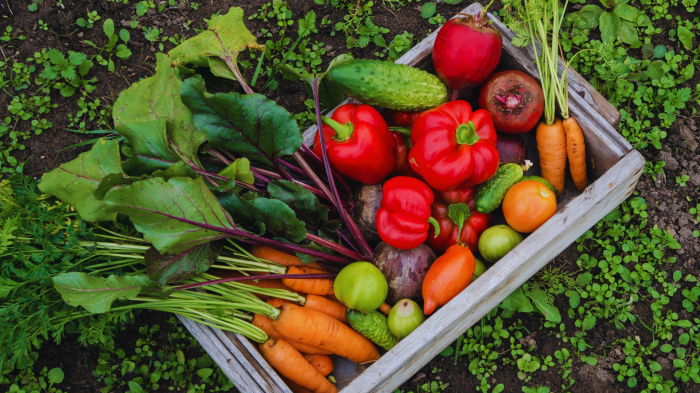Do Plants Like Rice Water?
Nutritional Content of Rice Water and its Benefits for Plants
Do plants like rice water – Rice water, the nutrient-rich liquid left over after rinsing rice, has gained popularity as a natural fertilizer for plants. Its composition varies depending on the type of rice used (brown or white) and the rinsing process. Understanding its nutritional profile is crucial to appreciating its potential benefits for plant growth.
Nutrient Composition of Rice Water
Rice water contains a variety of vitamins, minerals, and organic compounds beneficial to plants. These include vitamins like B vitamins (B1, B2, B3, B5, B6), which are essential for plant metabolism and growth. Minerals such as potassium, phosphorus, and zinc, crucial for plant health and development, are also present. Furthermore, rice water contains organic compounds like inositol, which promotes root growth, and amino acids, which are building blocks of proteins essential for plant structure and function.
The concentration of these nutrients varies depending on the type of rice and the water-to-rice ratio used during rinsing.
Comparison to Other Plant Fertilizers
Compared to commercially available fertilizers, rice water offers a more natural and sustainable alternative. While commercial fertilizers often contain high concentrations of specific nutrients, they may lack the balanced blend of vitamins, minerals, and organic compounds found in rice water. This balanced approach can promote overall plant health, rather than just focusing on specific aspects of growth. Moreover, rice water avoids the potential negative environmental impacts associated with some commercial fertilizers.
Benefits of Rice Water Nutrients for Plant Growth
The nutrients in rice water contribute to various aspects of plant growth. Potassium, for instance, improves water regulation and disease resistance. Phosphorus promotes root development and flowering. Zinc is essential for enzyme function and overall plant metabolism. The presence of vitamins and amino acids further enhances plant vigor and resilience.
Brown Rice Water vs. White Rice Water Nutrient Comparison
| Nutrient | Brown Rice Water (mg/L) | White Rice Water (mg/L) | Benefit to Plants |
|---|---|---|---|
| Potassium (K) | 20-40 | 10-20 | Improves water regulation and disease resistance |
| Phosphorus (P) | 10-20 | 5-10 | Promotes root development and flowering |
| Zinc (Zn) | 2-5 | 1-2 | Essential for enzyme function and plant metabolism |
| B Vitamins | Variable | Lower than brown rice water | Essential for plant metabolism and growth |
Effects of Rice Water on Plant Growth
Numerous observations and studies suggest that rice water positively impacts plant growth. The effects are visible across various plant species, although the magnitude of the impact can vary depending on factors such as plant type, rice water concentration, and application method.
Observed Effects of Rice Water on Plant Growth
Studies have shown that rice water can enhance seed germination rates, promote faster seedling growth, increase plant height, and improve overall yield in various plant species, including vegetables, herbs, and flowers. The improved growth is attributed to the readily available nutrients in rice water, which plants can easily absorb.
Impact of Rice Water on Plant Health
The beneficial effects of rice water extend beyond mere growth enhancement. Plants treated with rice water often exhibit increased disease resistance and improved tolerance to environmental stresses such as drought or heat. This improved resilience is likely due to the combined effects of the various nutrients and organic compounds present in the water.
Effects of Different Rice Water Concentrations
Different concentrations of rice water can have varying effects on plant growth. While diluted solutions are generally safe and effective for most plants, highly concentrated solutions can potentially lead to nutrient burn or other negative effects. Optimal concentrations often need to be determined through experimentation for specific plant species.
Effects on Root Development, Leaf Growth, and Flowering
Rice water’s impact on different plant parts is multifaceted. It promotes robust root development, providing a strong foundation for overall plant health. It also enhances leaf growth, leading to larger, healthier leaves. Furthermore, it can stimulate flowering and fruiting, leading to increased yields.
Application Methods of Rice Water
Applying rice water to plants can be done through various methods, each with its own advantages and disadvantages. Choosing the appropriate method depends on the plant type, growth stage, and available resources.
Methods of Applying Rice Water
- Watering: Diluted rice water can be used as a regular watering solution.
- Foliar Spray: Spraying diluted rice water on leaves can provide direct nutrient uptake.
- Soaking Seeds: Soaking seeds in rice water before planting can enhance germination.
Effectiveness of Application Methods
Watering is a convenient method for providing consistent nutrient supply to the roots. Foliar spraying offers faster nutrient uptake, particularly beneficial during periods of rapid growth. Seed soaking promotes quicker germination and stronger seedlings. The most effective method often depends on the specific needs of the plant and its growth stage.
Rice Water Application Schedule
A general schedule could involve watering or foliar spraying weekly or bi-weekly, adjusting the frequency based on plant needs and growth stage. Seed soaking should be done for 6-12 hours before planting.
Pros and Cons of Application Methods
| Method | Pros | Cons |
|---|---|---|
| Watering | Convenient, consistent nutrient supply | Slower nutrient uptake |
| Foliar Spray | Fast nutrient uptake, good for rapid growth | Requires more frequent application, can attract pests if not properly diluted |
| Seed Soaking | Promotes quicker germination, stronger seedlings | Requires extra preparation time |
Types of Plants Responding to Rice Water
A wide range of plants have shown positive responses to rice water application, although the degree of response can vary depending on the species and its specific requirements.
Plants with Positive Responses to Rice Water
Many common houseplants, herbs (like basil and mint), vegetables (such as tomatoes and peppers), and flowers have shown improved growth and health when treated with rice water.
Specific Benefits Observed in Plants
These benefits include enhanced growth rate, increased yield, improved leaf color and texture, stronger stems, and increased disease resistance.
Effectiveness on Different Plant Types
Rice water appears to be particularly beneficial for plants that are relatively sensitive to nutrient deficiencies or prone to certain diseases. However, its effectiveness can vary; some plants may show minimal response while others may exhibit significant improvements.
Plant Response Categorization
| Plant Type | Response to Rice Water | Observations |
|---|---|---|
| Leafy Greens | Positive | Increased leaf size and vigor |
| Tomatoes | Positive | Improved fruit production and size |
| Orchids | Neutral to Positive (depending on orchid type) | Some orchids may show improved flowering, others minimal effect |
| Roses | Positive | Larger, healthier blooms and increased flower production |
Potential Drawbacks of Using Rice Water
While rice water offers many benefits, it’s crucial to be aware of potential drawbacks and implement appropriate precautions to ensure safe and effective use.
Potential Negative Consequences
Improperly prepared or stored rice water can lead to fungal growth or attract pests. This is more likely if the water is not properly diluted or if it’s left to sit for extended periods without proper aeration.
Mitigation of Risks
Always use fresh, diluted rice water. Avoid using stagnant or moldy rice water. Properly aerate the rice water during preparation and storage to prevent anaerobic conditions that promote fungal growth.
Recommendations for Safe and Effective Use
Use only clean, fresh rice water, dilute appropriately, and apply regularly but not excessively. Observe plants closely for any signs of negative effects and adjust application accordingly.
Precautions When Using Rice Water

Source: littleleafy.com
- Use fresh, diluted rice water.
- Avoid using stagnant or moldy rice water.
- Properly aerate rice water during preparation and storage.
- Monitor plants for any adverse effects.
- Adjust application frequency and concentration as needed.
Comparison to Commercial Fertilizers
Rice water presents a viable alternative to commercial fertilizers, offering a sustainable and cost-effective approach to plant nutrition. However, a direct comparison reveals key differences in nutrient delivery and long-term effects.
Cost-Effectiveness and Environmental Impact, Do plants like rice water
Rice water is significantly cheaper than commercial fertilizers, utilizing readily available household resources. Its environmental impact is considerably lower, avoiding the synthetic chemicals and potential water pollution associated with some commercial options.
Nutrient Delivery Mechanisms
Commercial fertilizers often deliver nutrients in concentrated forms, readily available for immediate plant uptake. Rice water provides a more gradual and balanced release of nutrients, promoting sustained plant growth.
Long-Term Effects on Soil Health
Rice water contributes to improved soil structure and microbial activity over time, enhancing soil health in the long run. Commercial fertilizers, while providing immediate nutrient boosts, can sometimes negatively impact soil health if used improperly or excessively.
While rice water offers certain nutrients beneficial to plants, it’s crucial to understand the potential downsides of introducing additional substances. For instance, consider the question of whether or not you should use different solutions, like learning if it’s advisable to can you spray soapy water on plants , before applying anything to your plants. Ultimately, the best approach with rice water, as with any plant supplement, involves careful observation and moderation to avoid unintended consequences.
Visual Representation of Rice Water’s Effect: Do Plants Like Rice Water

Source: cushyfamily.com
Plants treated with rice water typically exhibit noticeable visual improvements compared to untreated control groups. These improvements are readily apparent in the overall plant vigor, leaf color, and size.
Visual Changes in Treated Plants
Treated plants often display richer, deeper green foliage, indicating improved chlorophyll production and overall plant health. Leaves are generally larger and more robust, with improved texture and turgor. Overall plant height and stem thickness are usually enhanced, signifying improved growth and development.
Appearance of Healthy Plants Fertilized with Rice Water
Healthy plants fertilized with rice water appear lush and vibrant. Leaves are a deep, healthy green, displaying a smooth texture and glossy sheen. Growth is consistent and vigorous, with strong stems and robust branching. Flowering and fruiting are often enhanced, leading to abundant blooms and yields.
FAQ Explained
Can I use leftover rice water from cooking?
Yes, but ensure it’s cooled completely to avoid harming plants with hot water.
How often should I water my plants with rice water?
Start with a diluted solution (1:1 rice water to water) and apply every 2-3 weeks. Adjust frequency based on plant needs.
Does rice water work on all plants?
While many plants benefit, some may not respond positively. It’s best to test on a small area first.
What if my rice water starts to smell bad?
Discard it. Spoiled rice water can harm plants and attract pests.
Can I use rice water on indoor plants?
Yes, but use a diluted solution and ensure good drainage to avoid root rot.




















